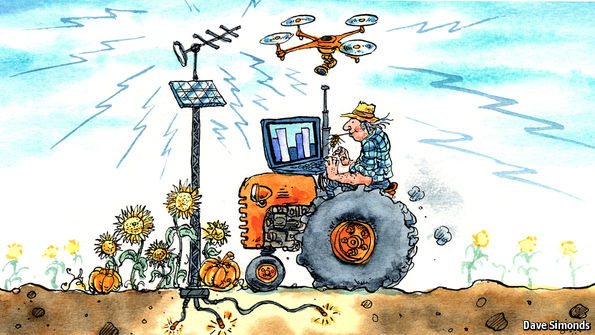TV dinners

ON THE Dancing Crow farm in Washington, sunflowers and squashes soak up the rich autumn sunshine beside a row of solar panels. This bucolic smallholding provides organic vegetables to the farmers’ markets of Seattle. But it is also home to an experiment by Microsoft, a big computing firm, that it hopes will transform agriculture further afield. For the past year, the firm’s engineers have been developing a suite of technologies there to slash the cost of “precision agriculture”, which aims to use sensors and clever algorithms to deliver water, fertilisers and pesticides only to crops that actually need them.
Precision agriculture is one of the technologies that could help to feed a world whose population is forecast to hit almost 10 billion by 2050. If farmers can irrigate only when necessary, and avoid excessive pesticide use, they should be able to save money and boost their output.
But existing systems work out at $1,000 a sensor. That is too pricey for most rich-world farmers, let alone those in poor countries where productivity gains are most needed. The sensors themselves, which probe things like moisture, temperature and acidity in the soil, and which are…Continue reading
Source: Economist




